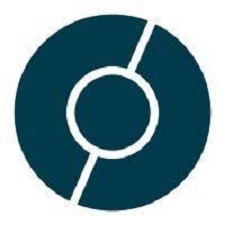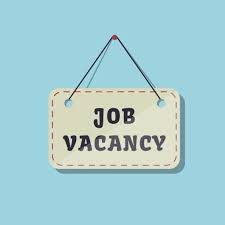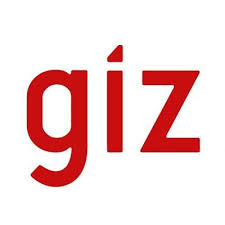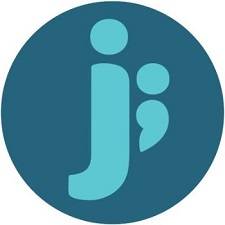🇸🇱 Job Vacancies @ International Rescue Committee – 2 Positions
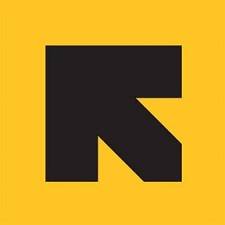 International Rescue Committee is recruiting to fill the following positions:
International Rescue Committee is recruiting to fill the following positions:
1.) Senior Program Officer
2.) Consultant to develop a WASH Strategy
See job details and how to apply below.
1.) Senior Program Officer
International Rescue Committee
4 Off Hill Cot Road
Freetown
Sierra Leone
Tel: (232) 76-471-796
E-mail: SL-Administration@theirc.org
VACANCY ANNOUNCEMENT
Position: Senior Program Officer (1)
Grade: 8A
Location: Freetown
Reports to: Senior Health Coordinator
Duration: 12 months, with possibility of extension based on performance and funding.
Application Deadline 3rd February 2023
(Only the applicants who have applied via the IRC Website Cornerstone and shortlisted for interview will be contacted).
Background:
The International Rescue Committee (IRC), one of the world’s largest humanitarian agencies, provides relief, rehabilitation, and post-conflict reconstruction support to victims of natural disaster, oppression, and violent conflict in 42 countries. The IRC has worked in Sierra Leone since 1999 and currently programs across three core sectors: 1) Health 2) Women and Girls’ Protection and Empowerment (WGPE), and 3) Education. The IRC is committed to supporting the Government of Sierra Leone in the strengthening of the country and has offices in Bo, Kailahun, Kenema, and Kono, with national geographic reach through partners. We seek to build upon our programming experience and introduce new programs that are adaptive, collaborative and evidence-driven, leading to a more educated, safe, healthy, and empowered Sierra Leone.
Under the health sector, the IRC currently implements a growing number of projects across the four districts. To improve coordination and successful implementation of current and future projects, the IRC seeks to recruit a Senior Program Officer to provide ongoing support to the health team by linking the team with Supply Chain, Finance, Administration, Human Resources, etc. both in Freetown and across the district offices to ensure implementation of activities and financial documentation are well coordinated and in harmony. The Senior Program Officer will provide day-to-day logistic, finance, Admin, HR, and other related support to the health team to ensure smooth running of activities. The incumbent may also be requested to provide other programmatic support as needed. This is a full-time national staff position based in Freetown.
Scope of work
Reporting to the Senior Health Coordinator, the Senior Program Officer will work in collaboration with support teams such as Grants, Finance, Supply Chain, Admin, HR, IT, etc. and to ensure the implementation of health-related activities within the organization. Key responsibilities for the position are summarized as follows:
- Ensure the health team receives administrative and logistical support for the smooth running of activities.
- In collaboration with respective project coordinators, maintain and update activity and budget trackers every fortnight to ensure activities are implemented within agreed upon timeframes and within allocated budget.
- Work with the support team to ensure invoices from vendors are cleared and that all expenses are captured in relevant financial reports.
- Support project coordinators to review and share inputs to relevant financial reports every month, ahead of BvA meetings.
- Work with Finance, Grants, Supply Chain, Admin, HR, and programs to ensure adequate review and discussion of BvA reports every month and follow up on implementation of action items accordingly and discuss any emerging issues with the supervisor as needed.
- Provide logistical and administration support during preparation and implementation of health-related workshops, meetings, events, and trainings.
- In collaboration with the Senior Health Coordinator, assist with the preparation and submission of monthly management reports for the health team.
- Perform other related duties and responsibilities to ensure that goals and objectives of projects are met and to support IRC program implementation.
Requirements:
- Bachelor’s degree in a health-related field is required.
- Advanced knowledge and skill in MS Excel, Word and PowerPoint are required.
- Knowledge of, and experience in, finance and budget management are required.
- Excellent report writing skills in English are required.
- At least 5 years of demonstrated experience in similar position with similar responsibilities in international NGOs.
- Strong analytical, coordination, and communication skills.
- Ability to work with limited supervision.
WORKING ENVIRONMENT:
The IRC and IRC workers must adhere to the values and principles outlined in IRC Way – Standards for Professional Conduct. These are Integrity, Service, and Accountability. In accordance with these values, the IRC operates and enforces policies on Beneficiary Protection from Exploitation and Abuse, Child Safeguarding, Anti Workplace Harassment, Fiscal Integrity, and Anti-Retaliation.
IRC is equal opportunity employer, considered all the candidates based on merit without regard to race, sex, color, nationality, religion, sexual orientation, age, marital status, veteran, or disability.
Mode of Application:
All applications must be done using the below link and should include a cover letter, updated CV, names of three referees and their active telephone and email contacts, copies of professional certificates and testimonial
Please ensure that all attached files are less than 2 megabytes (2MB) for any one message that is sent.
A copy of your application letter, updated CV, labour card and all other supporting documents should be sent to the NGO Desk Officer, Ministry of Labour – New England or to the nearest Ministry of Labour office nationwide.
Please contact any of our offices captioned below for further information and/or detailed requirements or call on 076-471-796.
WOMEN ARE STRONGLY ENCOURAGED TO APPLY
2.) Consultant to develop a WASH Strategy
International Rescue Committee
Sierra Leone Program
4 Off Hill Cot Road, Freetown
Sierra Leone
Tel : +232 (0)76 471 796
Email : SL-Administration@rescue.org
VACANCY ANNOUNCEMENT
Job Title: Consultant to develop a WASH Strategy for IRC Sierra Leone.
Sector: Health
Employment Category: Consultant
Employment Type: Part time-Time-based
Duration of the contract: 30 working days, starting on 15th February 2023
Open to Expatriates: Yes
Location: Freetown
Deadline for applications: 3rd February 2023
(Only the applicants who have applied via the IRC Website Cornerstone and shortlisted for interview will be contacted).
BACKGROUND
The International Rescue Committee responds to the world’s worst humanitarian crises and helps people to survive and rebuild their lives. Founded in 1933 at the request of Albert Einstein, IRC offers life-saving care and life-changing assistance to refugees forced to flee from war or disaster. At work today in more than 40 countries and 22 U.S. cities, IRC restores safety, dignity and hope to millions of people uprooted by conflict or disaster. IRC leads the way from harm to home.
The IRC began emergency operations in Sierra Leone in 1998 during the civil war. In the post-conflict reconstruction period, the IRC consolidated its operations into three core programmatic areas: health, education, and women’s protection and empowerment. In addition, the IRC leads consortia in education and health working with 8 partners at national scale. The IRC has offices in Freetown, Bo, Kenema, Kailahun, and Kono Districts but implements programs in many other districts through partners and one of its consortium projects is implemented in all the sixteen districts in the country. The IRC is implementing projects in Health, Education and Women and Girls Protection and Empowerment (WPGE) across the country and is planning to introduce Water, sanitation, and hygiene (WASH) programming to its portfolio.
INTRODUCTION
Water, sanitation, and hygiene are essential environmental determinants of health and well-being. Providing safe WASH services and adequate waste management is essential to ensuring the delivery of high-quality health care, community well-being and preventing infections. The WASH sector is also among the sectors that employ many people and creates new livelihood opportunities for vulnerable groups.
Sierra Leone’s health system has not yet fully recovered from the effects of the decade-long civil war, the Ebola epidemic, the COVID-19 pandemic; and other outbreaks such as measles, and cholera, among others. Despite investments in WASH during previous and current epidemics, the country still struggles with WASH infrastructure. The disease burden, due to poor hygiene practices, is extremely high. The country’s economic growth fluctuated from 4.6% in 2014 to 2.1% in 2015, and to 4.7% in 2020, and the country is still one of the poorest in the world. Poverty has a negative impact on the already weak health system and remote rural areas and marginalized communities are particularly prone to related shocks. The climate patterns in Sierra Leone have changed: average temperatures have increased by 0.8°C, and annual rainfall has varied. Between 2011 and 2018, Sierra Leone lost 151,873 hectares of tree cover and this has increased the levels of flooding across the country. It also led to increased soil erosion which not only affects the local population, but also downstream populations where soil deposits are built up.
The International Rescue Committee (IRC) conducted a WASH assessment in five districts including Bo, Kenema, Kailahun, Kono and Pujehun. The assessment covered the policy and strategy document review for WASH and provided an overview of WASH at the country level, in addition to specific findings for each of the five districts assessed.
Although the country reports an increase in access to basic (safely managed and basic) water sources from 59 per cent (2015) to 64 per cent (JMP, 2020), the disparities in rural and urban water are still high, estimated at 53 per cent and 79 per cent respectively. There is also high inequality in water supply in planned and unplanned settlements and poor quantile in urban areas. Many existing water systems are not functional. Out of the existing improved water sources, an estimated 28 – 30 per cent are not functional due breakdowns. Water contamination is also a serious concern where 85% of drinking water from improved water sources is contaminated with E. coli. Big cities like Freetown records high water rationing due to increase of the population of Freetown that is not proportional to the capacity of the dam. At the time of construction of the dam (1950s-60s) it was designed to serve around 500,000 and now the population is more than 1.2 million people. Freetown’s water distribution network has also significant leakages, resulting unacceptably in high rates of Non-Revenue Water (NRW) estimated at 56.5% during dry weather and 57.8% during wet weather periods.
Even though Sierra Leone‘s open defecation rate reduced from 26% in 2000 to 16% in 2020 it is still high. The portion of the population using unimproved sanitation is also still high (29%). Moreover, only 16% of Sierra Leone‘s population have access to at least safely managed and basic sanitation and 38% have limited sanitation. The majority (48%) of those with access to sanitation uses latrines while a limited number of the population use septic tank (6%) and only 1% in the cities have access to the sewer system. In Freetown, an estimated 336,440 m3 of faecal sludge is generated annually by households in planned and unplanned dwellings, public toilets and businesses and institutions. Only 21% of generated sludge reaches and is treated at a faecal sludge treatment plant located at Kingtom which is the only one in Sierra Leone. The remaining 78% is disposed of by being buried onsite following manual emptying without transport to a designated treatment facility or discharged in waterways or the ocean without further treatment. Limited road accessibility deprives over half of Freetown‘s population of access to mechanized emptying technologies.
According to a study in 2019 by UNICEF, there is a massive need for WASH support in healthcare facilities. Despite the efforts of many actors, including the government, many wells in healthcare facilities are not functional. The same assessment revealed that only 36% have functional water supply systems and 49% have hand washing facilities with water and soap at all points of care. While the need to increase access to water, sanitation and hygiene in communities, schools, and healthcare facilities, across the five district remains necessary, the issue of water point efficiency is very urgent for schools and healthcare facilities. For the majority of schools and all HCFs, the water point efficiency was below the minimum standard of at least 15 liters per student per day (UNICEF) and 5 liters per out-patient and 40-60 liters per in-patient/day (WHO). It was also evidenced that the functionality of sanitation was very low. There is evidence that social behavior change programs focus on increasing access to sanitation facilities, but little emphasis is made on monitoring the use of attained facilities. Many HCFs do not have a reticulation system which is a disincentive to improving hand hygiene. Health facilities and schools do not have disability-friendly WASH facilities.
PURPOSE
The purpose of this assignment is to develop an IRC WASH Strategy that will guide the organization’s approach to WASH programming for the next five years. This is part of the IRC’s strategic action plan and is related to the organization’s WASH objective namely “People have access to water, sanitation and hygiene and live enhanced environment”.
OBJECTIVE
The overall objective of this assignment is to develop the IRC WASH strategy that will guide the development and implementation of WASH interventions for IRC in Sierra Leone for the next five years. The assignment will have the following specific objectives:
- Identify key WASH constraints and challenges preventing different categories of people in Sierra Leone to have access to clean water, improved sanitation, and hygiene.
- Propose strategies to address key WASH challenges while focusing on addressing localization, girls’ and women’s needs, social inclusion.
- Develop a strategic implementation plan and a detailed monitoring, evaluation and learning framework with milestones.
PROPOSED METHODOLOGY AND APPROACH
This assignment will involve a literature search and review, consultative meetings, and validation meeting. No active data collection is expected. The assignment will be done in three phases:
- Phase one: The inception phase will involve meetings with IRC to discuss and agree on methodology and approach, the strategy structure and components, preliminary presentation of the issues to be addressed from the WASH assessment and other relevant documents, workplan/timeline. The deliverable for phase one will be an approved inception report.
- Phase two: After the inception phase, the next step will involve a thorough review of literature, context analysis, strategy development, presentation of different scenarios to the IRC, consultative meeting with the IRC, etc. The deliverable for this phased will be a draft strategy document with proposed strategic alternatives, goals and strategic objectives, success statements, and milestones/scenarios.
- Phase three: Upon approval of the draft strategy document, phase three will involve development of an implementation plan and a clear MEAL framework building on Strategic Goals and Objectives. This will also involve consultative meetings with the IRC as needed.
EXPECTED DELIVERABLES
The consultant will be responsible for the following deliverables:
- Approved Inception Report.
- Draft WASH Strategy for IRC Sierra Leone.
- Implementation plan and MEAL Framework.
IRC ROLES
The IRC will be responsible for the following:
- Providing background documentation on the IRC’s vision, mission, and values, and specifically for WASH.
- Providing final report on IRC’s global WASH assessment. the approved for the completed WASH assessment
- Providing technical guidance and support during the assignment
CALL FOR PROPOSALS
The IRC invites interested individuals or consultancy firms to submit proposals to conduct this assignment. The proposals should include a technical proposal (with the consultant’s profile, their understanding of the assignment; a detailed description of the methodology they intend to use; the draft structure of the final document, and any other relevant sections). The Consultant should also submit a financial proposal, with daily rates.
REQUIREMENTS
The successful consultant will be expected to demonstrate:
- Advanced degree in Environmental Health or related field.
- Experience in WASH programming in Sierra Leone
- Experience in strategy planning and development, particularly for WASH.
- Detailed knowledge of, and experience in, WASH issues with a focus on sustainability and integration of WASH into health systems specifically in low- and middle-income communities.
- Strong analytical and communication skills.
- Ability to mobilize in-country WASH sector partners and stakeholders in Sierra Leone.
IMPORTANT NOTES
Treatment of Information and Confidentiality
All data and information received for the purpose of this assignment is to be treated confidentially and is only to be used in connection with the execution of these terms of reference. All intellectual property rights arising from the execution of these terms of reference are assigned to the IRC. The contents of written material obtained and used in this assignment may not be disclosed to any third parties without the expressed advance written authorization of the IRC.
Key Working Relationships
The Consultant will liaise directly with, and get support from, the Senior Health Coordinator based in Freetown and/or the IPC/WASH Specialist based in Bo District.
Code of Conduct and Ethics
The Consultant is expected to abide by the IRC code of conduct for suppliers, as well as evaluation principles of independence, transparency, quality, utility including IRC Way principles. The consultant is also expected to follow national rules and regulations on research and ethics in Sierra Leone.
Duty of Care
The Consultant is responsible for the safety and well-being of their Personnel and Third Parties affected by the activities under this contract, including appropriate security arrangements. The IRC will share available information with the Consultant on security status of the country, as needed, but is not responsible for the safety and well-being of the consultant and their personnel.
The IRC is an Equal Opportunities Employer and considers all applicants based on merit without regard to race, sex, color, national origin, religion, sexual orientation, age, marital status, veteran status, or disability.
Mode of Application:
All applications must be done using the below link and should include a cover letter, updated CV, names of three referees and their active telephone and email contacts, copies of professional certificates and testimonial
Please ensure that all attached files are less than 2 megabytes (2MB) for any one message that is sent.
A copy of your application letter, updated CV, labour card and all other supporting documents should be sent to the NGO Desk Officer, Ministry of Labour – New England or to the nearest Ministry of Labour office nationwide.
Please contact any of our offices captioned below for further information and/or detailed requirements or call on 076-471-796.
WOMEN ARE STRONGLY ENCOURAGED TO APPLY

